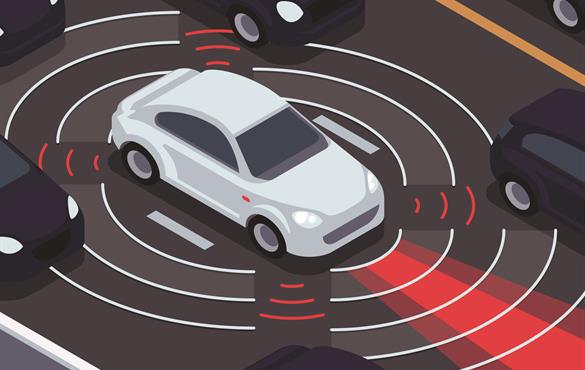Helping autonomous vehicles, robots make better plans
Brendan Juba plans to develop a way that autonomous vehicles and other devices that use machine learning can improve their understanding of the world

Autonomous vehicles are very good at carrying out the specific task of driving – as long as nothing in their path changes.
Brendan Juba, a computer scientist at Washington University in St. Louis, plans to develop ways that a planning agent can help autonomous vehicles, robots, or other devices that use machine learning to improve their understanding of the world. The agent also will either provide a guarantee that either the operation is safe or a warning that safety cannot be guaranteed. The work is funded by a three-year, $419,877 grant from the National Science Foundation. Through the U.S.-Israel Binational Science Foundation, Juba is collaborating with Roni Stern, a faculty member in the Department of Software and Information Systems Engineering at Ben-Gurion University in Israel.
"With autonomous vehicles or robots, the setting that they are facing is always changing, and it's changing as a result of their behavior," said Juba, assistant professor of computer science & engineering in the McKelvey School of Engineering. "The focus of the project is on learning in these kinds of settings in which there is a dynamic environment your robot or autonomous vehicle is operating. The point is to have the learning part and the part of deciding what to do or what actions to take to work together so that the decisions about what actions to take or what behaviors to have are conservative."
In such cases, Juba said, it would be preferable for the robot or autonomous vehicle to determine that it doesn't know what would happen as a result of its behavior rather than make a decision that could turn out to be the wrong one.
For example, if an autonomous car frequently trained on a road in which one lane was usually blocked with orange cones, it would learn what the cones mean and what actions to take or not take, similar to how a human could learn to drive, Juba said.
"We want to be able to quantify how confident we are that things are going to work in contexts where there is no guaranteed safe path forward, but it can limit the number of unsafe steps to take," he said.
Juba will study how a planning agent can improve its model of the world through working with robot simulators. The team will then develop automated planning algorithms based on the learned models to produce plans with the desired guarantees.




